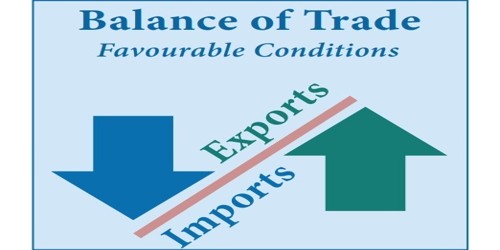
The landscape of real estate investment is undergoing a transformative shift, particularly in 2023. With the rise of technology, changing investor demographics, and evolving economic circumstances, real estate crowdfunding has emerged as a leading investment strategy.
Understanding Real Estate Crowdfunding
Real estate crowdfunding refers to the process of pooling money from multiple investors through online platforms to finance real estate projects. This mechanism allows individual investors to participate in real estate opportunities that would otherwise require significant capital. Crowdfunding can be applied to various property types, including residential, commercial, and industrial real estate.
The Mechanics of Crowdfunding
Investors typically browse offerings on crowdfunding platforms, where they can review project details, financial projections, and developer backgrounds. Once investors decide to contribute, they can invest varying amounts, often starting from a few hundred to several thousand dollars. Returns may come in the form of rental income or profit distributions upon sale, depending on the structure of the investment.
1. Accessibility to a Wider Audience

One of the most significant reasons for the popularity of real estate crowdfunding in 2023 is its accessibility. Traditional real estate investments often require substantial financial resources, making it difficult for average investors to participate. Crowdfunding democratizes the investment process, allowing individuals to invest in real estate with as little as one thousand dollars. This lower barrier of entry opens up opportunities for millennials, Gen Z, and those earlier in their investment journeys, contributing to the growing popularity of this model.
Expanding Investor Demographics
The new generation of investors is seeking opportunities that align with their values and investment goals. Real estate crowdfunding appeals to these investors as it not only allows them to invest in tangible assets but also provides a sense of community and shared purpose among fellow investors.
2. Transparency and Information Sharing
Real estate crowdfunding platforms enhance transparency by providing comprehensive information about their offerings. Before investing, potential investors can assess financial documents, forecasts, and due diligence materials provided by developers. This accessibility to information fosters a level of trust that is often missing in traditional real estate transactions.
Emphasis on Due Diligence
Investors are now empowered to conduct their due diligence, allowing them to make informed decisions. Platforms often showcase risk assessment analyses and detailed project plans, enabling investors to understand the potential risks and rewards associated with each opportunity thoroughly.
3. Diversification of Investment Portfolios

Diversification is a fundamental principle of successful investing. Real estate crowdfunding allows investors to spread their capital across multiple projects and geographical locations, reducing risk exposure. Rather than investing all their funds in a single property, investors can allocate smaller amounts to various initiatives, creating a more balanced portfolio.
Benefits of Geographic Diversification
The 2023 real estate market exhibits varied trends across different regions. Some areas are experiencing rapid growth, while others face stagnation. Crowdfunding platforms empower investors to access varied markets, allowing them to capitalize on emerging opportunities while mitigating potential risks.
4. Adaptation to Market Trends
The real estate market is constantly evolving, influenced by social, economic, and technological factors. The growing acceptance of remote work has reshaped demand for commercial and residential properties, with a noticeable shift towards suburban and rural locations. Real estate crowdfunding gives investors the ability to tap into these evolving market trends.
Targeting Emerging Markets
Crowdfunding platforms are agile, enabling them to identify and pursue investment opportunities in rapidly developing areas. Investors interested in markets that traditional real estate investment avenues may overlook can find promising projects through crowdfunding campaigns.
5. Technology-Driven Efficiency

Technological advancements play a crucial role in the growth of real estate crowdfunding. The integration of sophisticated software enables platforms to streamline the investment process, enhancing user experience. Features such as automated documentation, real-time updates, and digital communication tools create a seamless and efficient investment journey.
User-Friendly Interfaces
Investors are increasingly seeking platforms that showcase user-friendly designs. The best crowdfunding platforms provide intuitive interfaces that allow users to quickly navigate project listings, investment options, and account information. This technological convenience is attracting more investors to the crowdfunding model.
6. The Rise of Alternative Investments
As conventional investment avenues such as stocks and bonds face volatility, investors are increasingly exploring alternative investment options. Real estate has long been considered a stable asset class, and crowdfunding provides an accessible avenue for individuals looking to diversify their holdings.
Stability in Uncertain Times
In an unpredictable economic climate, real estate crowdfunding offers a potential hedge against inflation and market downturns. Many investors view real estate as a reliable source of passive income, making it an attractive addition to their portfolios, especially in times of economic uncertainty.
7. Legislative and Regulatory Support
Regulatory changes have significantly impacted the growth of real estate crowdfunding. The Jumpstart Our Business Startups (JOBS) Act of 2012 in the United States was a landmark piece of legislation that opened the door for equity crowdfunding, allowing non-accredited investors to participate in investment opportunities. These regulatory changes have spurred the growth of crowdfunding platforms, creating an environment conducive to investment.
Importance of Compliance
As the industry matures, compliance with regulatory guidelines becomes paramount. Platforms are increasingly focusing on maintaining transparency and protecting investors’ interests. Regulatory compliance reinforces trust in the crowdfunding model, encouraging more investors to participate.
8. The Influence of Successful Campaigns
Successful crowdfunding endeavors have demonstrated the potential of this investment model, showcasing how investors can yield substantial returns. Media coverage and case studies highlighting these successes further bolster interest in real estate crowdfunding.
The Power of Testimonials
Real-life success stories serve as powerful motivators for potential investors. When individuals see others achieving their financial goals through real estate crowdfunding, they are more likely to explore investment opportunities for themselves. These testimonials create a sense of community and encourage new investors to engage with crowdfunding platforms.
9. Building Community and Engagement
Real estate crowdfunding platforms often emphasize building a vibrant community among investors and developers. This sense of belonging can significantly enhance investor confidence and contribute to overall satisfaction with the investment experience.
Networking Opportunities
Many platforms provide opportunities for investors to connect, discuss projects, and share insights. This collaborative atmosphere fosters trust and encourages long-term relationships among investors, developers, and crowdfunding platforms.
10. Challenges and Considerations
While real estate crowdfunding presents numerous advantages, it is crucial for investors to recognize the associated challenges. Not every project will succeed, and market fluctuations can impact returns. Investors should remain vigilant and perform thorough research on projects and platforms before committing funds.
Understanding Risk Management
Investors need to assess their own risk tolerance and ensure they are selecting projects that align with their financial goals. The importance of risk management cannot be understated, particularly in the dynamic real estate landscape where unforeseen challenges may arise.
Conclusion
Real estate crowdfunding is poised to continue its upward trajectory in 2023. Its accessibility, transparency, and alignment with current market trends position it as an attractive investment option for a wide range of investors. By leveraging technology and offering diverse opportunities, crowdfunding platforms are reshaping how individuals engage with real estate.
As the industry evolves, those who embrace these changes and conduct diligent research will likely benefit from the opportunities presented by real estate crowdfunding. With the right approach, investors can enjoy the rewards of participating in a market that is increasingly open to innovation and growth.








